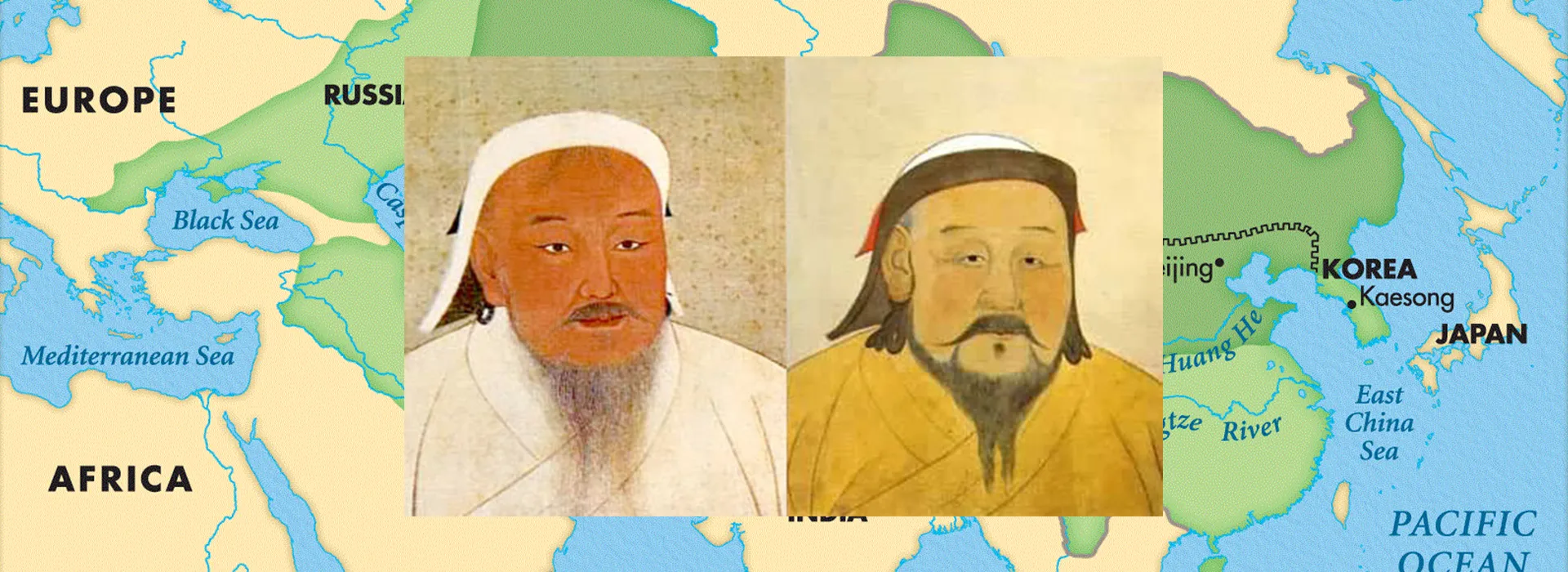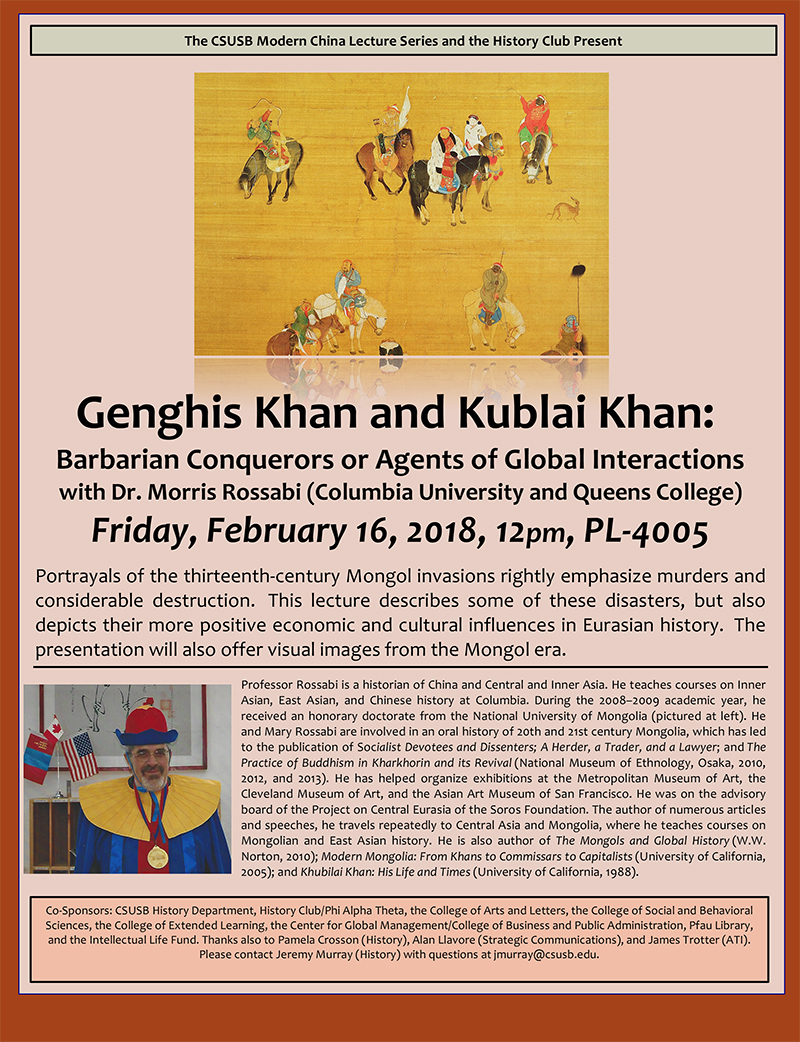Joe Gutierrez Office of Strategic Communication (909) 537-5007 joeg@csusb.edu

The 13th century invasions of Genghis Khan and his grandson Kublai Khan often emphasize murders and considerable destruction, and while the next Modern China Lecture will discuss that, it also will examine the Mongol rulers’ more positive economic and cultural influences in Eurasian history.
“Genghis Khan and Kublai Khan: Barbarian Conquerors or Agents of Global Interactions,” will be presented by Morris Rossabi, a historian of China and Central and Inner Asia.
The lecture, which is free and open to the public, will take place at noon on Friday, Feb. 16, at the John M. Pfau Library, room PL-4005. Parking at CSUSB is $6.
At the end of the 12th century, Genghis Khan united all the Mongolian tribes after 10 years of war. The empire grew under his rule, stretching from the northern borders of China to the Danube River in central and eastern Europe. Kublai Khan began his rule in 1260 A.D.
Rossabi teaches courses on Inner Asian, East Asian, and Chinese history at Columbia University in New York City and is a distinguished professor of history at Queens College, The City University of New York. During the 2008–2009 academic year, he received an honorary doctorate from the National University of Mongolia.
He and Mary Rossabi, a historian who teaches at The City University of New York and is an adjunct at Columbia, are involved in an oral history of 20th and 21st century Mongolia, which has led to the publication of “Socialist Devotees and Dissenters”; “A Herder, a Trader, and a Lawyer”; and “The Practice of Buddhism in Kharkhorin and its Revival” (National Museum of Ethnology, Osaka, 2010, 2012, and 2013).
Rossabi has helped organize exhibitions at the Metropolitan Museum of Art, the Cleveland Museum of Art, and the Asian Art Museum of San Francisco. He was on the advisory board of the Project on Central Eurasia of the Soros Foundation.
The author of numerous articles and speeches, Rossabi travels repeatedly to Central Asia and Mongolia, where he teaches courses on Mongolian and East Asian history. He is also author of “The Mongols and Global History” (W.W. Norton, 2010); “Modern Mongolia: From Khans to Commissars to Capitalists” (University of California, 2005); and “Khubilai Khan: His Life and Times” (University of California, 1988).
The Modern China Lecture Series was initiated to promote awareness of important issues related to China for those on the CSUSB campus and in the community. In the series of more than 40 lectures, workshops, film screenings and roundtable forums since January 2014, China scholars from UC San Diego, UC Riverside, the Claremont Colleges, UCLA, USC, UC Irvine and other institutions have visited the CSUSB campus to share their expertise and opinions.
Speakers in the series have included specialists in history, economics, political science, philosophy, finance, security studies, literature, anthropology and other fields. Look for upcoming events from renowned scholars including Weijing Lu (UCSD) in May.
The Modern China Lecture Series is sponsored by the CSUSB history department, History Club/Phi Alpha Theta, the College of Arts and Letters, the College of Social and Behavioral Sciences, the College of Extended Learning, the Center for Global Management/Jack H. Brown College of Business and Public Administration, John M. Pfau Library, Margaret Hill and the World Affairs Council of Inland Southern California, and the Intellectual Life Fund. Special thanks also to Pamela Crosson (history), Alan Llavore (strategic communication) and James Trotter (ATI).
For more information on the Feb. 16 event or the Modern China Lecture Series, contact Jeremy Murray, associate professor of history, at jmurray@csusb.edu.
For more information on Cal State San Bernardino, contact the university’s Office of Strategic Communication at (909) 537-5007 and visit inside.csusb.edu.
